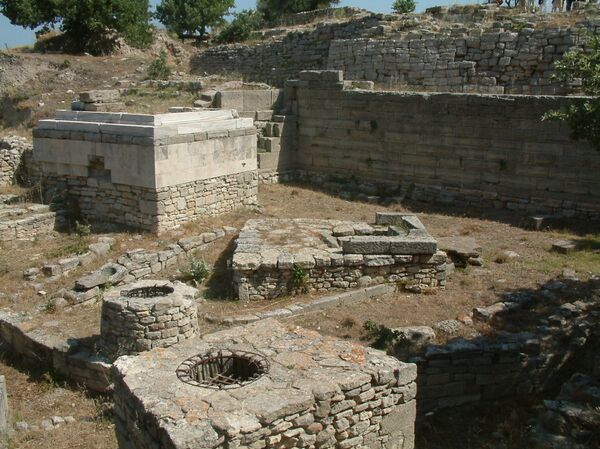A handwritten Bible estimated to be over a thousand years old has been seized in northwestern Turkey in an anti-smuggling operation by security forces in Bursa province on Friday, 13 December, reports Daily Sabah.
The Bible, inscribed on papyrus, appears to be in the ancient Aramaic language.
Gendarmerie forces had acted on a tip-off, raiding a house in the Osmaniye neighborhood of the city's İnegöl district. Four suspects, including two potential purchasers, were detained in the incident, writes the Turkish publication.
Security forces seize 1,000 year-old handwritten Bible in northwestern Turkey’s Bursa https://t.co/UzcgUm9Bez
— DAILY SABAH (@DailySabah) December 13, 2019
Numerous anti-smuggling operations are carried out across Turkey every year to halt the illegal sale of historical artifacts. Earlier in the year, Turkish security forces seized early manuscripts of the Bible in anther raid in the same province.
Undercover officers posing as historical artifact purchasers had set up a meeting with the smuggling suspects.
The two Bible manuscripts seized in the operation were said to date back almost 2,000 years to early Christianity, summarily worth $1.75 million, according to according to Demirören News Agency.
Turkey has conceded that illicit excavations by both foreigners and locals have been one of the country’s most important issues for over a century.
Some artifacts uncovered in Turkey are displayed in various famous museums throughout the world despite possibly having been illegally smuggled out of the country, with official procedures to retrieve these artifacts taking a long time.
Thus, in 2018, Turkey retrieved the famed "Gypsy Girl" mosaic from Bowling Green State University (BGSU) in Ohio, the US, decades after the Roman-era artifact was smuggled from the southern city of Gaziantep.
[Video] Gypsy girl mosaic back home in Turkey https://t.co/6gIUWLB8ZY pic.twitter.com/HMIOgdkGPP
— ANADOLU AGENCY (ENG) (@anadoluagency) November 28, 2018
The 12 pieces were found in the 1960s during illegal excavations in the ancient Roman town of Zeugma, and smuggled abroad.



